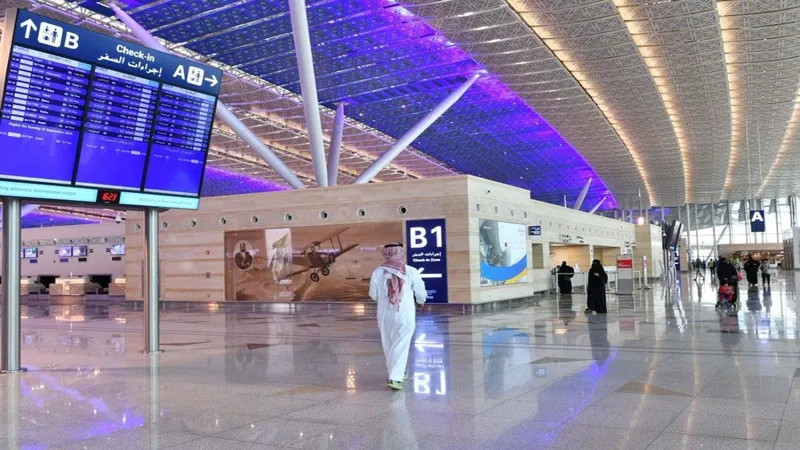In today’s digital age, the allure of travel often leads potential explorers to the vast ocean of information available online. However, amid the enticing deals and glossy advertisements, a more sinister trend has emerged: the proliferation of fake travel websites designed to deceive unwary consumers. Recent revelations from the Tourism, Arts and Culture Ministry highlight the gravity of this issue, warning that such fraudulent platforms not only mislead travelers but also pose significant risks of financial fraud. As we delve into this pressing matter, it becomes crucial for travelers to navigate the digital landscape with caution and awareness.
| Category | Details |
|---|---|
| Issue | Existence of fake travel websites that mislead consumers |
| Verdict | TRUE |
| Date of Statement | February 21 |
| Responsible Authority | Tourism, Arts and Culture Ministry |
| Action Taken | Collaborating with authorities to block fake websites |
| Detected Fake Websites | Two fake websites identified |
| Risks | Misleading public and potential fraud |
| Official Information Source | Visit the official ministry website at motac.gov.my |
| How to Report Suspicious Websites | Submit complaints via SISPAA or email/phone |
Understanding Fake Travel Websites
Fake travel websites are online platforms that pretend to be legitimate travel agencies, but in reality, they are designed to trick people. These websites often look professional and can seem convincing. However, they might offer deals that are too good to be true, leading travelers into scams. It’s important to be careful and do research before booking any travel services online.
Travelers should know that the Tourism, Arts and Culture Ministry has warned about these fake websites. They have discovered at least two sites that mislead consumers with false information. This means that if you’re looking for travel services, you must check if the website is real and connected to the official ministry to avoid falling into a trap.
How to Identify Fake Websites
Identifying fake travel websites can be tricky, but there are some signs to look for. First, check the website’s URL. Official sites often have a .gov or trustworthy domain. Second, look for contact information. Legitimate travel agencies provide clear ways to reach them, like phone numbers or emails. If a site lacks this information, it can be a warning sign.
Another way to spot a fake website is by looking for customer reviews and feedback. Real companies have reviews on various platforms. If you can’t find any information about the website or if all reviews seem overly positive, it’s wise to be cautious. Doing a quick internet search for the agency’s name can help you figure out if it’s trustworthy.
The Importance of Official Tourism Websites
Official tourism websites play a vital role in helping travelers find reliable information. These sites, like the one run by the Tourism, Arts and Culture Ministry, provide accurate details about licensed travel agencies and tour guides. By using these official sources, travelers can ensure they are getting the best services and avoid scams.
Additionally, official tourism websites often update their information to keep the public informed about travel regulations, safety tips, and new attractions. This helps travelers make educated choices about their trips. Always remember to visit the official site before planning your adventures!
What to Do If You Encounter a Fake Website
If you stumble upon a fake travel website, it’s important to report it. The Tourism, Arts and Culture Ministry has set up systems for the public to file complaints about suspicious websites. By reporting these sites, you can help protect other travelers from falling victim to scams.
You can submit your complaints through the Public Complaints Management System or email the ministry directly. Sharing your experience can also help raise awareness about these fake sites, making it harder for them to trick more people. Taking action is a great way to contribute to safer online travel planning!
How the Ministry is Fighting Fake Websites
The Tourism, Arts and Culture Ministry is actively working to combat fake travel websites. They are collaborating with various authorities to block and shut down these fraudulent sites. This effort aims to protect consumers and ensure that travelers can trust the information they find online.
By taking these actions, the ministry shows its commitment to maintaining a safe travel environment. They understand how important it is for travelers to find reliable services. Their measures not only help prevent fraud but also strengthen the overall trust in online travel planning.
Tips for Safe Online Travel Planning
Planning your travel online can be fun, but it’s important to do it safely. Start by researching different travel agencies and reading reviews from other travelers. Look for agencies that have been around for a while and have a good reputation. This way, you can feel more confident in your choices.
Additionally, always use secure payment methods when booking trips online. Avoid websites that ask for unusual payment options or personal information. By following these tips, you can enjoy your online travel planning without worrying about scams!
Frequently Asked Questions
Are there fake travel websites I should be aware of?
Yes, there are fake travel websites that pretend to be official. These sites can mislead you with false information and unauthorized services.
How can I identify a fake travel website?
Look for official logos, check reviews, and ensure the website has contact information. Always cross-check with the Ministry’s official site.
What should I do if I find a suspicious travel website?
Report it to the Tourism Ministry through their Public Complaints Management System or email them directly with your concerns.
What is the official website for tourism information?
The official website for tourism information and licensed travel agencies is https://www.motac.gov.my/.
How can I file a complaint about travel fraud?
You can file a complaint through the Public Complaints Management System at https://motac.spab.gov.my/ or contact the ministry via email or hotline.
What actions is the government taking against fake travel websites?
The government is actively working with authorities to block and shut down fake websites to protect consumers from fraud.
Why is it important to be cautious with travel websites?
Being cautious helps prevent fraud and ensures you get accurate information about licensed travel services.
Summary
Tourism is a major industry, and many travelers search online for information and deals. However, some websites are fake and pretend to be official travel platforms. The Tourism, Arts and Culture Ministry confirmed that there are indeed fake websites that aim to trick travelers with incorrect information. They have found two such sites and are taking steps to shut them down. The ministry urges everyone to only use their official website for accurate tourism information and to report any suspicious sites through their complaint system.



